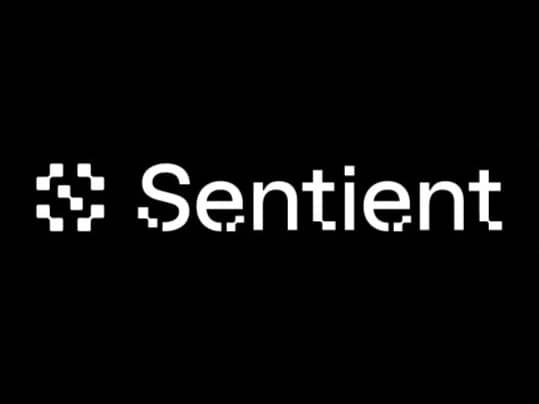订阅 wiki
Share wiki
Bookmark
Sentient
0%
Sentient
Sentient 是一家位于旧金山的科技公司,专注于开发开源通用人工智能 (AGI)。该组织的主要项目是“GRID”,这是一个开放智能网络,旨在协调大量 AI 模型、代理、数据和工具。 [1] [2]
概述
Sentient 声明的使命是确保通用人工智能保持开源,并且不受任何单一实体的控制。该组织秉承开放开发模式最终将超越封闭的专有人工智能实验室的进步的原则。 按照这一理念,Sentient 将其所有研究和技术突破作为开源贡献发布。 其方法的中心原则在其官方通讯中表达:“每一次突破都以开源形式发布,推动我们的使命,并证明开放性在每一步都超越了封闭实验室。” [1]
Sentient 工作的核心是开发“GRID”,它将其描述为一个开放智能网络。 该网络旨在作为协调各种 AI 组件的基础设施,包括 100 多个模型、代理、数据源和工具,使它们能够作为一个有凝聚力的系统运行。 该项目位于加利福尼亚州旧金山,截至 2025 年 9 月处于 BETA 阶段。 [1]
历史
Sentient 的公开亮相始于 2024 年 2 月创建其官方 X(前身为 Twitter)帐户。该组织于 2025 年 6 月 3 日通过一篇题为“什么是 Sentient”的博客文章正式介绍了其使命和项目。
在 2025 年年中,Sentient 发表了一系列研究论文和文章,详细介绍了其在 AI 编码能力、代理安全漏洞及其核心项目 GRID 的架构方面的工作。 这一时期的主要技术公告包括 2025 年 9 月 8 日推出的 ROMA 框架。 [1] [2]
2025 年 9 月,该项目报告了一个重要的活动和增长时期。 9 月 16 日,Sentient 宣布对 GRID 进行重大升级,并为其 Sentient Chat 平台推出一项名为“Spaces”的新功能。 第二天,该公司报告称在 12 小时内有 15,000 名新用户加入 Sentient Chat。 随后,该公司于 9 月 18 日宣布与 Tria 建立代理支付合作伙伴关系,并计划于当月晚些时候参加韩国区块链周。 [2]
技术
Sentient 的开发工作涵盖了 AI 技术的完整堆栈,从基础模型和代理框架到安全协议。 [1]
GRID
GRID 是 Sentient 的核心项目,被描述为一个开放智能网络,旨在集成和协调 100 多个不同的 AI 模型、代理、数据源和工具。 它旨在作为 Sentient 生态系统的支柱,允许不同的 AI 组件作为一个统一的系统运行。 [1]
Sentient Chat
Sentient Chat 是 GRID 的主要公共接口和网关。 该平台允许用户与生态系统中开发的技术进行交互、测试开源存储库并提供反馈。 它被描述为连接 GRID 各个要素的基础设施。 [1] [2]
9 月推出的一个关键功能是“Spaces”,旨在通过将信息收集和工具整合到一个界面中来简化用户工作流程,从而减少对多个浏览器选项卡的需求。 Spaces 还集成了 AI 驱动的分析,在用户与界面中的不同模块交互时为用户提供额外的上下文。 [2]
ROMA(递归开放元代理)
ROMA 是 Sentient 开发的开源框架,用于创建高性能多代理系统。 该框架旨在通过将大型目标递归分解为更小、更易于管理的子任务来解决复杂的任务。 然后将这些子任务的结果重新组合以实现长期推理。 Sentient 声称 ROMA 的性能超过了同类封闭源系统。 [1]
Dobby
Dobby 是 Sentient 描述为“世界上第一个指纹 AI 模型”的 AI 模型。 它是在社区共同所有权模式下开发的,据报道涉及超过 700,000 个人。 该模型经过明确的训练,并与被描述为“支持加密货币和支持自由”的价值观保持一致。 其开发和原则在题为“Dobby 报告”的出版物中详细说明。 [1]
研究和出版物
Sentient 积极发布其研究成果,以支持其开源使命。 该组织的工作重点是增强模型功能、安全性和性能评估。 [1]
开放深度搜索
Sentient 开发了开放深度搜索,该系统将开源大型语言模型 (LLM) 与推理代理和专有搜索工具相结合。 该组织发表的研究声称,该系统实现了优于 GPT-4o 搜索预览的性能。 相关论文可在 arXiv 上找到。 [1]
指纹识别
为了解决模型安全性和出处问题,Sentient 创建了一个用于 AI 模型“指纹识别”的加密库。 这项技术将无法检测和验证的数字签名直接嵌入到模型的参数中,从而可以安全地跟踪模型的来源和所有权。 [1]
基准测试
该组织开发定制的高保真基准,以评估 AI 在通用评估可能忽略的专业领域的性能。 这些基准侧重于公平编码实践、与以加密货币为中心的价值观保持一致以及治理原则等领域。 [1]
代理安全
Sentient 对代理安全性的研究发现现有开源代理框架中存在重大漏洞。 一个关键的关注领域是“上下文操纵攻击”,其中可以操纵外部输入来损害代理的行为。 该研究还表明,经过专门微调的模型可以更好地抵御此类攻击,并可以提高整体代理安全性。 [1]
合作伙伴关系
Sentient 已建立合作伙伴关系,以扩展 GRID 的功能和生态系统。
2025 年 9 月,Sentient 宣布与 Tria 建立合作伙伴关系,以担任 GRID 的代理支付合作伙伴。 Tria 的基础设施,包括其“BestPath”技术,旨在促进 AI 代理、人类和网络上其他实体的无缝财务结算。 这种集成允许代理在各种 区块链 和传统金融系统中交易、转移或花费资产。 [2]
该组织还与 @SentientEco 和 @OpenAGISummit 等生态系统计划相关联,表明更广泛的社区和活动参与。 [2]
团队和投资者
根据其官方网站,Sentient 的研究团队由来自领先大学和 AI 实验室的个人组成,但未公开具体成员姓名。 [1]
该项目已获得技术和 加密货币 领域几位杰出个人和机构投资者的支持。 值得注意的个人投资者包括 Naval Ravikant 和 Balaji Srinivasan。 机构投资者包括 Framework Ventures、Polychain Capital、1kx、Robot Ventures、Bain Capital Crypto、Nascent、Figment Capital、dao5、Anagram、Archetype、Collab+Currency 和 Symbolic Capital。 [1]
发现错误了吗?
